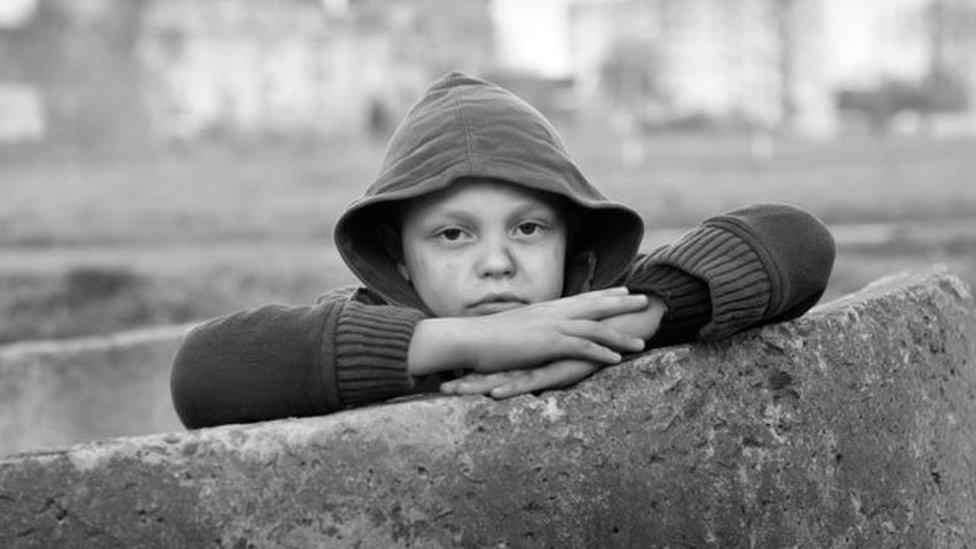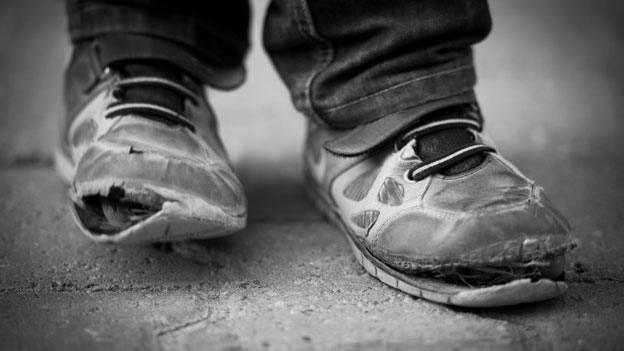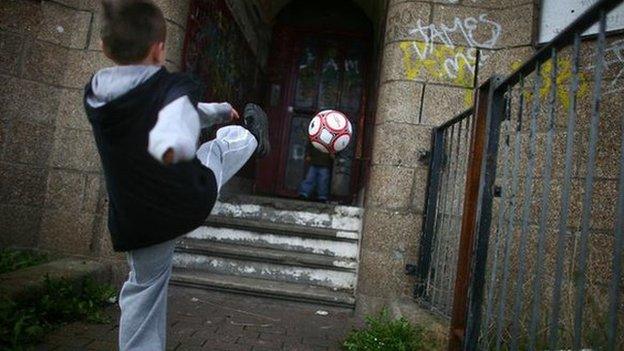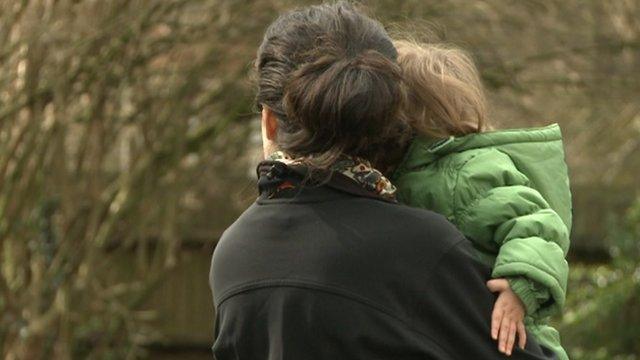No end to child poverty by 2020, Welsh Government says
- Published

A target to end child poverty in Wales by 2020 cannot be achieved, the Welsh Government has admitted.
Communities Secretary Carl Sargeant said progress had been made but UK government welfare reforms were hindering Welsh Government ambitions.
He said it did not have the power needed to make the significant changes needed to reach the goal.
The Department for Work and Pensions said welfare reforms were helping people who can work get employment.
In 2015, almost 72,000 children were living in workless households in Wales.
The 2020 target is a long-standing goal and was restated in a child poverty strategy last year.
Mr Sargeant said progress had been made in number of areas, including improvements in the school performance of children who receive free school meals, fewer children now living in workless households and higher employment rates.
'Stretched resources'
But Mr Sargeant said the Welsh government lacked the power to make some of the required policy changes.
In an update to AMs, he said: "Our commitment to tackling child poverty is not in doubt.
"However, the decisions and actions of the UK government on welfare reform, which, alongside changes in the labour market play a major part in the forecasted rise in poverty, mean that we are not going to be able to achieve our ambition to eradicate child poverty by 2020."
"The Welsh Government does not hold the primary policy and fiscal levers, especially in terms of the welfare system, needed to enable us to deliver the significant changes needed.
"The issues we face can therefore, only be tackled through new ways of working. Within a context of stretched resources and reducing budgets, we need to focus our efforts where we can have most impact with the levers we have available."
'Simply unacceptable'
Going forward, he said a "new, whole-government approach" was needed to help tackle child poverty.
He said this included improving people's wellbeing, economic prosperity and employment opportunities.
Children's Commissioner for Wales, Sally Holland, said more than 200,000 children in Wales were living in poverty - 60% of those in homes with parents who work - which she said was "simply unacceptable".
She added: "Instead of an arbitrary target we now need to deliver an ambitious plan with specific and measurable actions that will improve outcomes for children and families in poverty."
A Department for Work and Pensions (DWP) spokesman said: "Our welfare reforms make sure that work always pays, providing opportunity for all those who can work and safety net for those who can't work.
"Since 2010, the number of people living in poverty has fallen by 300,000 but we know there's more to do.
"That's why we're increasing the National Living Wage and taking millions of people out of income tax, to make sure it always pays to be in work."
- Published22 November 2011
- Published18 June 2015

- Published25 June 2015

- Published27 March 2015
